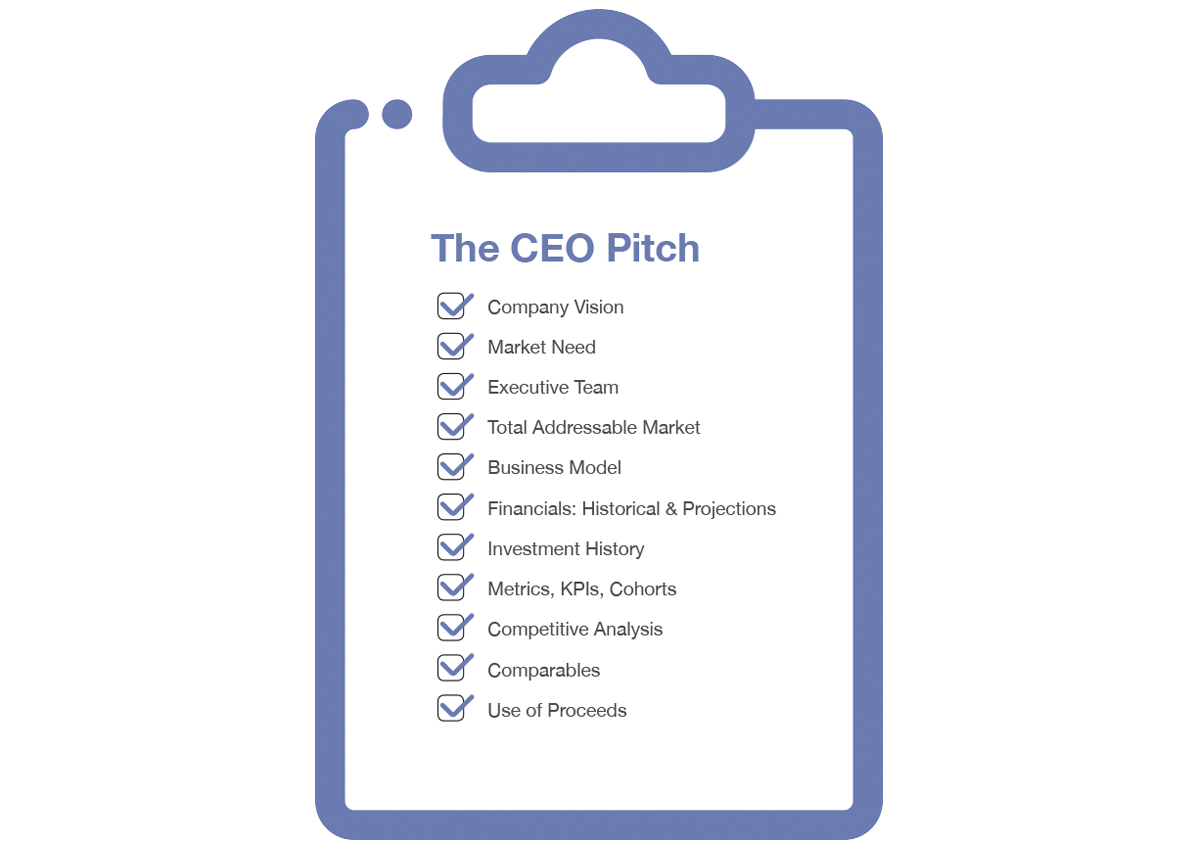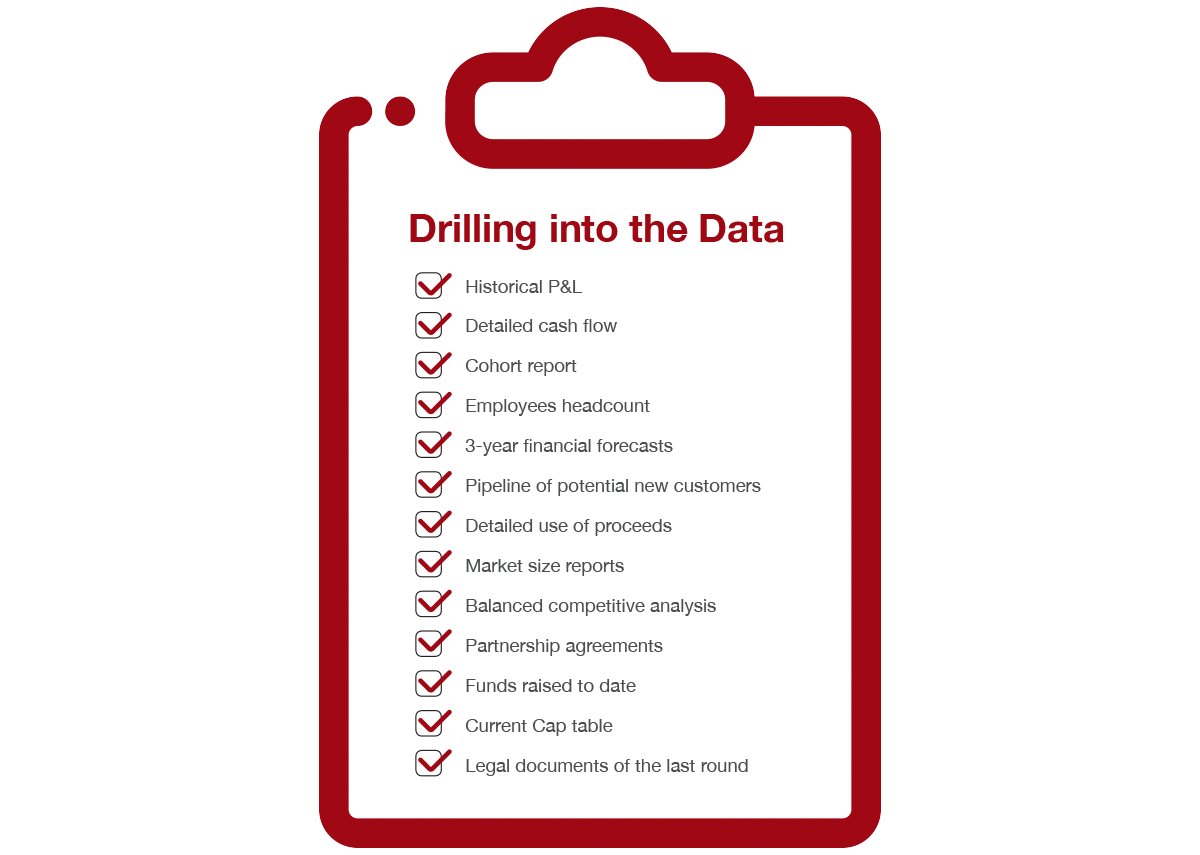Due Diligence …. one of the less favorable tasks on the list of a startup’s CEO. Raising money, although a necessary milestone in the company’s life, forces CEOs to make room for a demanding process, while continuing to successfully run their startup. But here is a perspective, consider this a great opportunity to gain independent and professional insight on how to improve your business operations and how to set the infrastructure for achieving the next level of scale.
I’d like to use this post to shed some light on what we, late stage investors, need and expect to receive from potential portfolio companies going through a Due Diligence process. While it may seem at times probing, we’re not really looking to find the holes in your plans, we want to invest in you, so we’d like you to be prepared and be aware of all the questions that you need to ask yourself.
Preparation
Expect the process to be far more data-intensive than when you were raising your earlier stage rounds at the initial stages of your company. There is a fair correlation between the stage you are at, the size of investment you are seeking and the amount of due diligence that is going to take place. Early-stage companies tend to have less tangible evidence available for checking. As a late stage company, your business has a substantial customer base, possibly spread across different sides of the globe, and is generating revenues alongside higher expenses. You have far more data and history to process, analyze and report so the financial and competitive discussions are significantly deeper. Investing in preparation of the process is time consuming but trust us, it will pay off and result in an overall efficient fundraising process. Moreover, when we evaluate a company at Qumra, we always look at the CEO’s ability to run a competent fundraising process. To us, this is both a testament to her/his leadership and to the potential ability to run a future successful IPO roadshow.
The CEO Pitch
The Due Diligence process typically starts with the CEO presentation. We are looking for it specifically to cover:

We expect the CEO to present this information while crafting a compelling vision. We want to get excited by the opportunity and at the same time be reassured on the CEO’s ability to execute on this vision. We’re looking for a deep, emotional commitment to lead and grow a large company, alongside the understanding of the growth levers and the smallest building blocks required to get there. And yes, we also want to see how objections are handled, this a key skill and we want to make sure the CEO possess it.
Drilling into the Data
During the next stage of Due Diligence, we will review the financials and other relevant reports. Gather these ahead of time and make sure you provide a complete set of data. Missing information implies you’re either not organized or not being upfront. Neither is a good sign. Best Practice is to provide access to a virtual and organized detailed data room which should include:

Meeting with Company Personnel
Experience has shown us that a company is only as strong as its team. Involve and engage your management team in the fundraising process. Meet with each of them to ensure that company’s vision is deeply embedded in the organizational culture, review their strategy for reaching the company’s goals under their responsibility and make sure you are all aligned on the targets and challenges ahead. When we meet with the management team, we’re not looking to pass judgement but rather to assess the management fit for the company’s next level of growth.
Reference Calls
We will also want to hear from your partners, clients, and personal references in order to obtain a balanced, complete picture. Be sure you reach out to these contacts beforehand to explain the process. We’ll be talking to them because it’s important for us to hear the good, the bad and the ugly.
Transparency
A good communication channel is crucial for our partnership to succeed, so being forthcoming is essential to Due Diligence. We don’t expect our CEOs & companies to be perfect. On the contrary, it’s important for us to have an objective 360 degrees prism so we know where we should focus our efforts as partners, the day after our investment. We need to feel comfortable with the past and present. Obviously not everything went as planned and it is critical to be transparent about what happened. If for example you had a financial period that seems out of character, don’t try to hide it. Be prepared to explain why it happened, what you’ve learned from that situation and how you’ll avoid similar issues in the future.
Term Sheet
Following a successful completion of the Due Diligence process, we will provide a term sheet that lays out our proposed terms of the investment and collateral. Our approach facilitates a win-win for both sides. We are firm believers in full alignment between founders and investors; entrants and incumbents. Furthermore, where we see room for improvement in the founders terms, we will make these changes. We want to ensure it’s the goal and interest of everyone around the table to take your company to the next level of growth. The term sheet step simply lays the groundwork for the final legal terms of our agreement and we try to fully discuss its terms with the CEO beforehand to avoid surprises. With professional legal counsel, the final legal documents can be executed quickly. But before you sign the dotted line, we also expect you to do your own Due Diligence on us and gain reassurance that you are dealing with a trustworthy partner. Check out our history and our ability to offer support for growing companies with founders and co investors.
The Keys to Acing Due Diligence
Ensuring a productive fundraising round is all about preparation, being forthcoming and showing transparency. As a growth company, this is a milestone marking a significant event in your company’s life. We know you have built a great company, we also know the market loves your product. We know you have put together a strong team and built a unique culture. Now we also need to get convinced that you are mature enough in your processes and standards and can raise and absorb a sizeable amount of growth capital that will enable you to significantly scale up.
Question? mail me at Sivan@qumracapital.com
